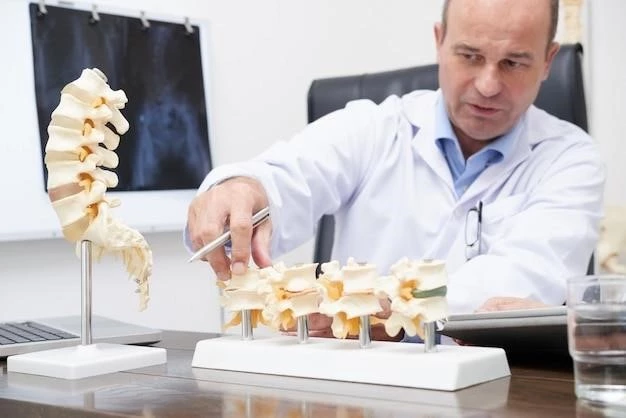Understanding Gonadal Dysgenesis‚ XX Type
Learn about gonadal aplasia‚ also known as Turner’s syndrome or ovarian dysgenesis‚ due to chromosomal abnormality XX. Explore primary amenorrhea‚ hormonal imbalance‚ infertility‚ and the need for gonadectomy. Discover treatment with hormonal replacement therapy‚ hormonal evaluation‚ and karyotype analysis.
Introduction to Gonadal Dysgenesis
Welcome to the comprehensive guide on gonadal dysgenesis‚ specifically focusing on the XX type. This condition‚ also known as Turner’s syndrome or ovarian dysgenesis‚ is characterized by chromosomal abnormalities affecting gonadal development. Individuals with this condition may experience primary amenorrhea‚ hormonal imbalances‚ and infertility.
Gonadal dysgenesis often necessitates gonadectomy to reduce the risk of complications such as gonadal malignancy. Hormonal replacement therapy plays a crucial role in managing the hormonal imbalances associated with this condition‚ helping to alleviate symptoms and improve quality of life.
Diagnosis of gonadal dysgenesis typically involves hormonal evaluation and karyotype analysis to identify chromosomal abnormalities. Understanding the underlying genetic factors contributing to this condition is essential for appropriate treatment planning and management.
Throughout this article‚ we will delve deeper into the causes‚ symptoms‚ diagnosis‚ treatment options‚ lifestyle considerations‚ prognosis‚ and future considerations related to gonadal dysgenesis‚ XX type. By gaining a comprehensive understanding of this condition‚ individuals and healthcare providers can work together to effectively manage and support those affected by gonadal dysgenesis.
Causes and Risk Factors
Gonadal dysgenesis‚ XX type‚ is primarily caused by chromosomal abnormalities affecting the development of gonads in individuals with two X chromosomes. The most common chromosomal anomaly associated with this condition is the complete or partial absence of one X chromosome‚ leading to gonadal aplasia.
Individuals with Turner’s syndrome‚ a specific form of gonadal dysgenesis‚ often have a karyotype of 45‚X or 45‚X/46‚XX mosaic. These chromosomal variations can disrupt the normal development of ovaries‚ resulting in ovarian dysgenesis and subsequent hormonal imbalances.
Various risk factors can contribute to the development of gonadal dysgenesis‚ including maternal age at conception and exposure to environmental factors during pregnancy. Additionally‚ genetic predispositions and familial history of chromosomal abnormalities can increase the likelihood of inheriting this condition.
Understanding the genetic underpinnings and risk factors associated with gonadal dysgenesis is crucial for early diagnosis and intervention. Individuals with a higher risk profile may benefit from genetic counseling to assess the likelihood of passing on chromosomal abnormalities to future generations.
By recognizing the causes and risk factors of gonadal dysgenesis‚ healthcare providers can offer personalized care and support to individuals affected by this condition. Through genetic testing‚ chromosomal analysis‚ and comprehensive medical evaluation‚ the underlying factors contributing to gonadal dysgenesis can be identified and addressed effectively.
Symptoms and Diagnosis
The symptoms of gonadal dysgenesis‚ XX type‚ can manifest in various ways due to the chromosomal abnormalities affecting gonadal development. Common symptoms include primary amenorrhea‚ delayed or absent puberty‚ short stature‚ webbed neck‚ and infertility.
Individuals with this condition may also experience hormonal imbalances leading to symptoms such as osteoporosis‚ cardiovascular issues‚ and metabolic disturbances. Early recognition and diagnosis of gonadal dysgenesis are crucial for timely intervention and management of associated complications.
Diagnosis of gonadal dysgenesis typically involves a thorough medical history review‚ physical examination‚ hormonal evaluation‚ and karyotype analysis. Hormonal tests help assess levels of estrogen‚ follicle-stimulating hormone (FSH)‚ luteinizing hormone (LH)‚ and thyroid hormones‚ which can indicate hormonal imbalances.
In addition to laboratory tests‚ karyotype analysis is essential for detecting chromosomal abnormalities‚ such as monosomy X (45‚X) or mosaicism involving X chromosomes. These genetic tests play a vital role in confirming the diagnosis of gonadal dysgenesis and guiding treatment strategies.
Healthcare providers utilize a multidisciplinary approach to diagnose and manage gonadal dysgenesis‚ incorporating the expertise of endocrinologists‚ geneticists‚ gynecologists‚ and other specialists. By collaborating on patient care‚ healthcare teams can provide comprehensive evaluations and individualized treatment plans for individuals with gonadal dysgenesis.
Complications of Gonadal Dysgenesis
Individuals with gonadal dysgenesis‚ XX type‚ may face various complications related to hormonal imbalances‚ gonadal abnormalities‚ and infertility. Hormonal imbalance‚ characterized by low estrogen levels and elevated gonadotropins‚ can increase the risk of osteoporosis‚ cardiovascular disease‚ and other metabolic issues.
Gonadal aplasia or dysgenesis can lead to primary amenorrhea‚ delayed puberty‚ and infertility‚ impacting reproductive health and fertility. Without appropriate hormone replacement therapy‚ individuals may also experience emotional and psychological challenges associated with these complications.
In addition‚ untreated gonadal dysgenesis poses a heightened risk of developing gonadal malignancies‚ such as gonadoblastoma or dysgerminoma. Regular monitoring and surveillance are crucial for detecting early signs of malignancies and initiating timely interventions to reduce the risk of cancer.
Furthermore‚ the physiological and psychological implications of gonadal dysgenesis can impact the quality of life and well-being of affected individuals. Addressing complications through a holistic approach that combines medical management‚ psychological support‚ and fertility counseling can help individuals navigate the challenges associated with this condition.
Healthcare providers play a vital role in monitoring and managing the complications of gonadal dysgenesis‚ promoting early intervention‚ and personalized care to optimize health outcomes. By addressing potential complications proactively‚ healthcare teams can enhance the overall quality of life for individuals living with gonadal dysgenesis.
Treatment Options
Managing gonadal dysgenesis‚ XX type‚ involves a comprehensive approach focused on addressing hormonal imbalances‚ reproductive health‚ and potential complications associated with the condition. Treatment options aim to optimize hormone levels‚ promote overall well-being‚ and support fertility considerations.
Hormonal replacement therapy is a cornerstone of treatment for individuals with gonadal dysgenesis‚ helping to supplement deficient hormones such as estrogen and progesterone. This therapy not only improves symptoms related to hormonal imbalances but also supports bone health‚ cardiovascular function‚ and overall quality of life.
In cases where gonadal malignancy risk is elevated‚ gonadectomy may be recommended to reduce the likelihood of cancer development. Surgical removal of gonads can eliminate the potential for malignancies and alleviate the physical and emotional burden associated with cancer risk.
For individuals facing infertility due to gonadal dysgenesis‚ assisted reproductive technologies such as in vitro fertilization (IVF) or egg donation may offer viable options for building a family. Fertility counseling and collaboration with reproductive specialists can help individuals explore alternative pathways to parenthood.
Ongoing monitoring and follow-up care are essential components of the treatment plan for gonadal dysgenesis. Regular evaluations‚ including hormone level assessments‚ imaging studies‚ and cancer screenings‚ help healthcare providers track the progression of the condition and intervene promptly as needed.
By considering individual needs‚ preferences‚ and health goals‚ healthcare teams can tailor treatment options to meet the specific requirements of each person with gonadal dysgenesis. Collaborative decision-making between patients and providers ensures a patient-centered approach to care that addresses both the medical and emotional aspects of managing this condition.
Lifestyle and Management Strategies
Living with gonadal dysgenesis‚ XX type‚ necessitates adopting lifestyle and management strategies that can enhance overall well-being and quality of life. Incorporating healthy habits and proactive measures can help individuals with this condition navigate the physical‚ emotional‚ and social aspects of their health.
Regular exercise plays a crucial role in supporting bone health‚ cardiovascular function‚ and overall fitness. Engaging in weight-bearing exercises‚ strength training‚ and cardiovascular activities can help mitigate the risks of osteoporosis and cardiovascular complications associated with hormonal imbalances.
A balanced diet rich in essential nutrients such as calcium‚ vitamin D‚ and iron is essential for supporting overall health and managing potential complications of gonadal dysgenesis. Consulting with a registered dietitian can help individuals develop personalized nutrition plans tailored to their specific needs.
Stress management techniques‚ such as mindfulness‚ meditation‚ and relaxation exercises‚ can be beneficial for coping with the emotional challenges that may accompany a diagnosis of gonadal dysgenesis. Building a strong support network and seeking counseling or therapy can also provide valuable emotional support.
Prioritizing regular medical appointments‚ including follow-ups with endocrinologists‚ gynecologists‚ and other specialists‚ is key to monitoring the progression of gonadal dysgenesis and managing treatment effectively. Open communication with healthcare providers ensures that any concerns or changes in health status are addressed promptly.
Engaging in healthy lifestyle practices and adopting proactive management strategies empowers individuals with gonadal dysgenesis to take control of their health and well-being. By incorporating these lifestyle modifications and seeking ongoing support from healthcare providers‚ individuals can achieve optimal health outcomes and maintain a fulfilling life despite the challenges posed by this condition.
Prognosis and Future Considerations
The prognosis for individuals with gonadal dysgenesis‚ XX type‚ depends on various factors‚ including early diagnosis‚ treatment adherence‚ and management of associated complications. With timely intervention and comprehensive care‚ many individuals can lead fulfilling and healthy lives despite the challenges posed by this condition.
Regular monitoring of hormone levels‚ bone density‚ cardiovascular health‚ and reproductive function is essential for assessing the long-term impact of gonadal dysgenesis and adjusting treatment strategies accordingly. Healthcare providers play a key role in coordinating ongoing care to optimize outcomes and quality of life.
Future considerations for individuals with gonadal dysgenesis include fertility planning‚ menopausal management‚ and psychosocial support. Discussions about family planning options‚ potential concerns related to premature menopause‚ and access to counseling services can help individuals prepare for future needs and transitions.
Advancements in medical research and technology offer promising prospects for improving the diagnosis and management of gonadal dysgenesis. Genetic testing‚ personalized medicine approaches‚ and innovations in assisted reproductive technologies continue to enhance treatment options and outcomes for individuals with this condition.
By staying informed about the latest developments in the field of gonadal dysgenesis‚ individuals and healthcare providers can collaborate to implement cutting-edge therapies and interventions that address the unique needs of each patient. Empowering individuals with knowledge and resources can pave the way for a brighter and more informed future in managing gonadal dysgenesis.
In conclusion‚ understanding and managing gonadal dysgenesis‚ XX type‚ require a comprehensive approach that addresses the underlying genetic factors‚ hormonal imbalances‚ and associated complications. Individuals diagnosed with this condition benefit from early diagnosis‚ hormonal evaluation‚ and personalized treatment strategies.
By recognizing the symptoms‚ causes‚ and risk factors of gonadal dysgenesis‚ healthcare providers can offer targeted interventions that aim to alleviate symptoms‚ mitigate complications‚ and optimize quality of life. Treatment options such as hormonal replacement therapy‚ gonadectomy‚ and assisted reproductive technologies play a vital role in managing this condition.
Lifestyle modifications‚ including regular exercise‚ balanced nutrition‚ stress management‚ and ongoing medical monitoring‚ are essential components of a holistic treatment plan for individuals with gonadal dysgenesis. Building a support network‚ staying informed about the latest advancements‚ and actively participating in healthcare decisions empower individuals to take control of their health.
Looking toward the future‚ ongoing research and advancements in medical science hold the promise of improved outcomes and innovative treatments for individuals with gonadal dysgenesis. By fostering collaboration between patients‚ healthcare providers‚ and researchers‚ we can continue to enhance the care and support available for those living with this condition.

With a multidisciplinary approach‚ personalized care‚ and a focus on holistic well-being‚ individuals with gonadal dysgenesis can navigate the challenges of this condition with resilience and hope. By advocating for ongoing education‚ early intervention‚ and patient-centered care‚ we can ensure that individuals affected by gonadal dysgenesis receive the support and resources needed to lead fulfilling lives.
